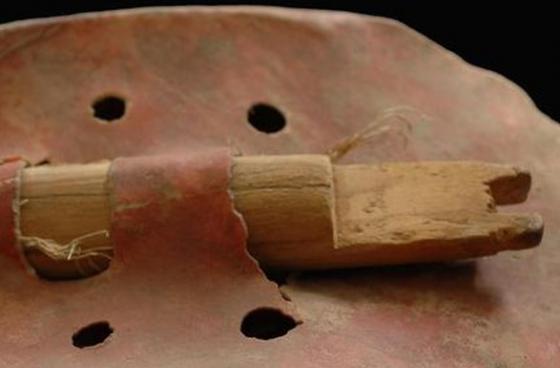Sounds as Material Culture: Experimental Archaeology and Ethno-Archaeology
Kind of Event
- Conference
Country
- Germany
Call for Papers
11. Symposium of the International Study Group on Music Archaeology
November 1-5, 2021 in Berlin
First Circular
Place: Humboldt Forum, Berlin (Germany)
Organisers: Lars-Christian Koch, Stefan Hagel, Dahlia Shehata
Schedule: November 1: Arrival, welcome and key-note speakers; November 2-5: conference panels, workshops and concerts; November 6: departure.
Following the motto “back to the basics of Music Archaeology” the 11th Symposium of the International Study Group on Music Archaeology 2021 will focus on the material background and experimental reconstruction of musical instruments. This is taken as the basis for the investigation and evaluation of past music cultures also in terms of sociological, political, psychological as well as neuroscientific perspectives: How are materials, their procurement, and production reflected in the social organization of musicians and instrument makers? What cognitive pre-conditions exist and develop in the course of realising the interplay between sound and material? What do findings on materiality, workmanship, playing and tuning tell us in regard to their distribution through space and time, conceived of as regionality and interculturality, tradition and change. Due to the question’s interconnectedness, investigations from all areas of Music Archaeology, Ethno-
Archaeology, Ethnomusicology and Material Culture Studies are equally in demand.
We warmly invite scholars and students to participate and contribute to the conference. Please send us your abstract (100-150 words) in English or German until March 31st 2021 to the following address: isgma2021@tutanota.com.
Talks are limited to a total length of 20 minutes, proposals for workshops of up to 120 minutes as well as posters are also welcome. All proposals will be evaluated by a committee of ISGMA members.
Topics
• (Experimental) instrument making, manufacturing, and producing processes, as well as implications about the required technical knowledge
• The function of specific components (e.g. sound, handling, decoration), and their usage (e.g. wear marks, patina, damages etc.)
• Playing and tuning techniques, sound production and composition
• Technical terms in instrument making, tuning systems, both in theory and in practice, and its adaptivity, e.g. to music education
• Technology and material studies in connection with craftmanships
• Producing and workshop organization, also regarding psychodynamics and sociodynamics
There will be no conference fee, though participants will generally be required to cover their travel and accommodation costs. More detailed information will follow in subsequent circulars. In the meanwhile, we look forward to reading your abstracts and to a stimulating exchange in Berlin. Even so, we all need to remain aware that the unpredictable nature of the present pandemic may require adjustments of the conference schedule, which we would
circulate at the earliest notice.
Sincerely
Lars-Christian Koch, Dahlia Shehata, Stefan Hagel

